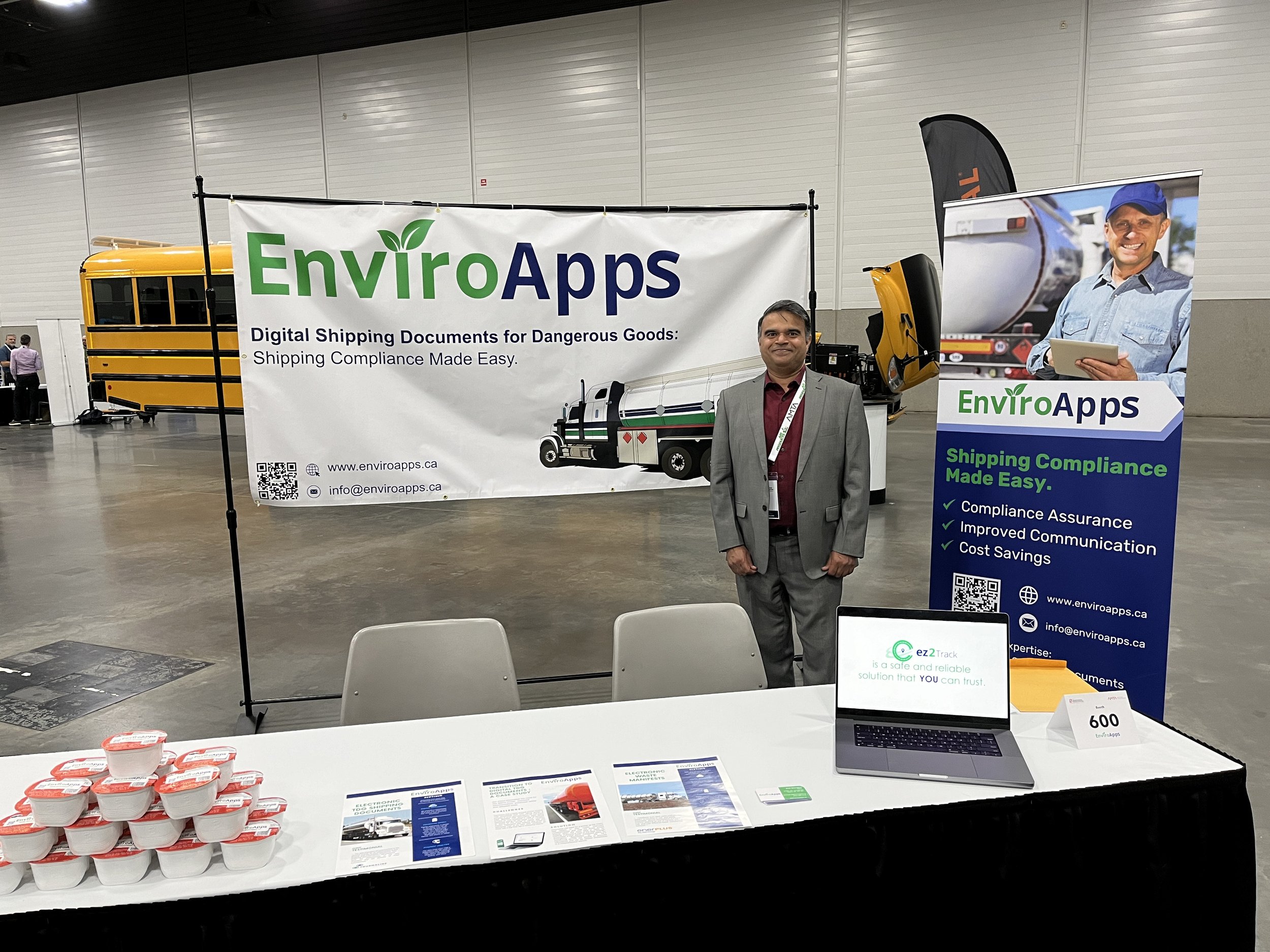Navigating the Emission Highway: Trucking Industry’s Reporting Challenges
Submitted by Amit Bhargava, CEO and Co-founder of EnviroApps Inc.
Navigating the Emission Highway: Trucking Industry’s Reporting Challenges
The trucking industry stands at a crossroads, facing growing pressure to embrace sustainability, increased reporting, and tapering margins.
As the world grapples with climate change, businesses are increasingly recognizing the need to address their environmental impact. For the trucking industry, this means understanding and mitigating emissions associated with their operations.
Scope 3 emissions refer to greenhouse gas (GHG) emissions that occur indirectly due to a company’s activities but are associated with its value chain. For the industry, these emissions come from sources like:
· Transportation: Think of the trucks that deliver fuel or equipment.
· Supply Chain: Emissions from suppliers, contractors, and subcontractors.
· Product Use: When consumers burn oil or gas for energy.
Note: For the Trucking Industry, emissions associated with transportation are Scope 1 or direct emissions.
Is Scope 3 Emissions Reporting mandatory?
Currently, regulatory requirements for reporting Scope 3 emissions vary significantly. Several international standards, such as the Global Reporting Initiative (GRI) and Carbon Disclosure Project (CDP), encourage reporting of Scope 3 emissions. However, these standards are widely recognized and often serve as a reference for companies that want to demonstrate their commitment to sustainability.
Decarbonization and Regulatory Pressure
· Customers increasingly care about Scope 3 emissions, so Shippers now assess emissions associated with trucking while selecting their Transporters.
· Major companies such as Amazon and PepsiCo have set ambitious Scope 3 reduction targets to achieve net-zero emissions by 2040, so they are cascading their targets down the supply chain, pressuring the trucking industry to track and reduce their emissions.
Challenges in Data Gathering for Scope 3 Emissions
Complex Supply Chains: Trucking companies operate within intricate supply chains involving multiple stakeholders. Gathering emissions data across these interconnected networks can be challenging due to limited visibility into third-party activities.
Ownership and Responsibility: Determining which part of the company owns the data collection process is often unclear. Is it the logistics team, procurement, or sustainability department? Clear ownership is essential for effective data gathering.
Data Quality and Robustness: Ensuring data quality and making it audit-grade is crucial. Trucking companies need robust data to comply with regulatory requirements. However, data reliability varies, especially when dealing with third parties.
The use of electronic shipping documents for Bill of Lading, Manifests and Transportation of Dangerous Goods (TDG) can automate the emission estimation and significantly reduce the effort required.
Benefits of Measuring Scope 3 Emissions
Although reporting of Scope 3 emissions is not yet mandatory and there are several challenges in data gathering, there are also multiple benefits that can be realized for a Trucking company:
· Better understanding of the total carbon footprint: Measuring or estimating their emissions provides trucking companies with a complete and transparent picture of their energy inputs which is one of their biggest costs. With a better understanding of emissions, trucking companies can effectively target their reduction efforts, focusing on high-impact areas.
· Meeting Stakeholder Expectations: A transparent and voluntary approach to emission reporting will strengthen relationships with the organization's various partners and clients.
· Competitive Advantage: Trucking companies that measure and communicate their emissions, position themselves as forerunners and leaders in their industry. Thus, in such a competitive sector, taking emissions into account can be a real differentiator, showing customers and partners a deep commitment to sustainability.
Estimating, measuring and reporting Scope 3 emissions, although not currently mandatory for trucking industry, can be part of a strategic approach for long-term resilience and competitiveness in the face of climate change challenges.
About the Author:
Amit Bhargava is the CEO and Co-founder of EnviroApps Inc., Canada’s pioneering digital TDG shipping documents provider. Amit founded EnviroApps to make sure accurate information reaches our first responders quickly so they can save lives. EnviroApps is making lives better by improving safety, ensuring compliance and saving costs. More info at www.enviroapps.ca

